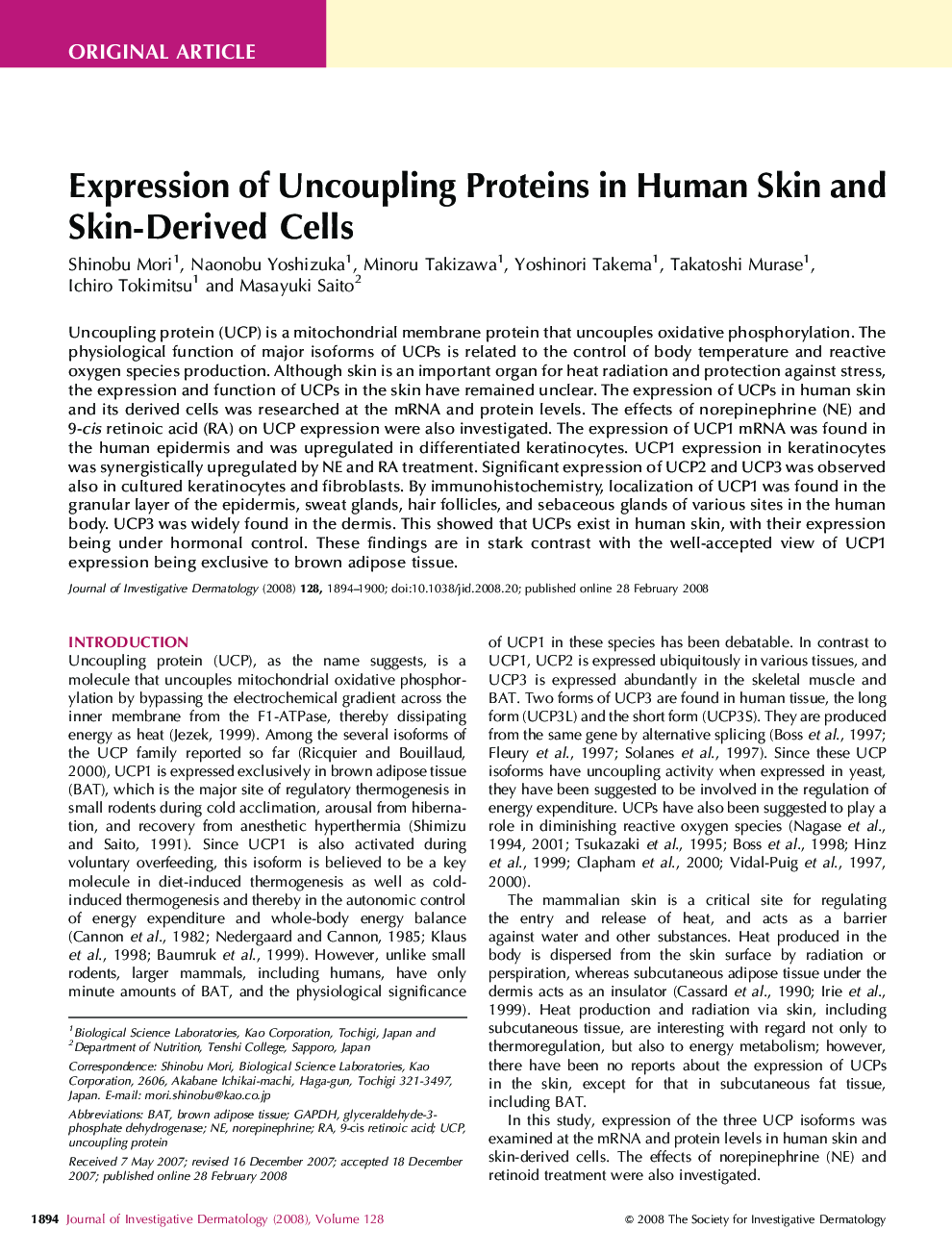| Article ID | Journal | Published Year | Pages | File Type |
|---|---|---|---|---|
| 3217487 | Journal of Investigative Dermatology | 2008 | 7 Pages |
Uncoupling protein (UCP) is a mitochondrial membrane protein that uncouples oxidative phosphorylation. The physiological function of major isoforms of UCPs is related to the control of body temperature and reactive oxygen species production. Although skin is an important organ for heat radiation and protection against stress, the expression and function of UCPs in the skin have remained unclear. The expression of UCPs in human skin and its derived cells was researched at the mRNA and protein levels. The effects of norepinephrine (NE) and 9-cis retinoic acid (RA) on UCP expression were also investigated. The expression of UCP1 mRNA was found in the human epidermis and was upregulated in differentiated keratinocytes. UCP1 expression in keratinocytes was synergistically upregulated by NE and RA treatment. Significant expression of UCP2 and UCP3 was observed also in cultured keratinocytes and fibroblasts. By immunohistochemistry, localization of UCP1 was found in the granular layer of the epidermis, sweat glands, hair follicles, and sebaceous glands of various sites in the human body. UCP3 was widely found in the dermis. This showed that UCPs exist in human skin, with their expression being under hormonal control. These findings are in stark contrast with the well-accepted view of UCP1 expression being exclusive to brown adipose tissue.
